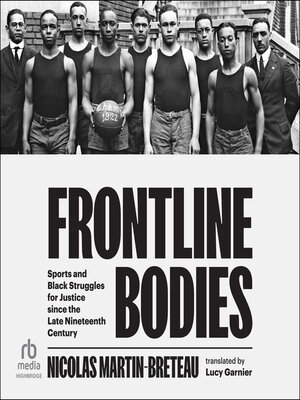Frontline Bodies
audiobook (Unabridged) ∣ Sports and Black Struggles for Justice since the Late Nineteenth Century
By Nicolas Martin-Breteau

Sign up to save your library
With an OverDrive account, you can save your favorite libraries for at-a-glance information about availability. Find out more about OverDrive accounts.
Find this title in Libby, the library reading app by OverDrive.



Search for a digital library with this title
Title found at these libraries:
| Loading... |
In Frontline Bodies, Nicolas Martin-Breteau argues that sports are not-and have never been-purely about entertainment for Black Americans. Instead, beginning in the 1890s during Reconstruction, Black Americans proactively used athletics as a tactic to fight racial oppression. Martin-Breteau considers the work of Edwin B. Henderson, a prominent Black physical educator, civil rights activist, and historian of Black sports. Training Black children as athletes, Henderson felt, would work both to fortify racial pride and to dismantle racial prejudices-two necessary requirements for a successful political liberation struggle. In this way, physical education became political education. By the end of the twentieth century, Martin-Breteau argues, racial uplift through sports had lost its emancipating power. The emphasis on the accumulation of wealth for professional athletes, as well as sports' ability to reinforce anti-Black stereotypes, had become a political problem for true collective liberation. For a marginalized group of people that has been physically excluded from the democratic process, however, sports remain a political resource. By studying the relationship between athletics and politics, Frontline Bodies renews the history of minority bodies and their power of action.






